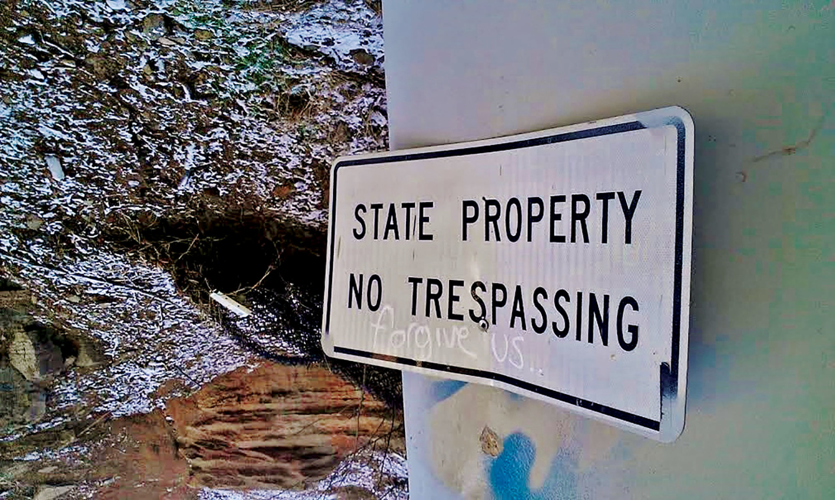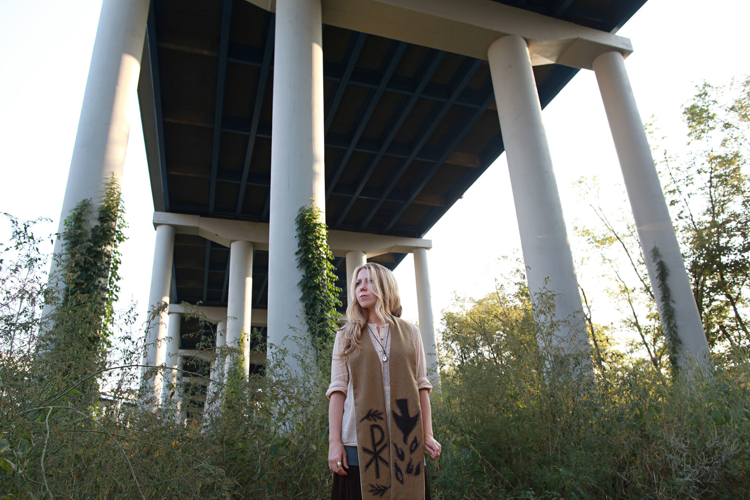
Before the flood, Tent City was the largest settlement of people experiencing homelessness in Nashville, seeing about 80 to 140 residents at a time, plus their pets. But in 2010, Nashville’s historic flood hit and washed it all away.
With more than 100 people displaced from Tent City, five ministers and theologians who had been working with its residents led the effort to find them a new site. Out of this post-disaster scramble, they formed Open Table Nashville, a nonprofit dedicated to — in the organization’s own words — disrupting the cycle of poverty.
“There was a real need for a homeless outreach group that could be on the ground, in close relationship with people who are on the streets,” says Lindsey Krinks, co-founder of the nonprofit and its current interim co-director.
Before the flood, there was already tension between Tent City and Metro government, which had made attempts to close down the camp. After the flood cleared the site, Metro condemned the land, saying it was uninhabitable — upsetting both its former residents and their advocates.
Returning to Tent City wasn’t an option, so advocates found themselves leading the campers through a series of new temporary locations. First it was an 18-day stay at a Red Cross shelter at Lipscomb University. Later, car magnate Lee Beaman donated land in Antioch, which became a new campsite for about 40 former members of Tent City. That setup lasted a little more than a month — Antioch locals lodged complaints, soon forcing the campers off the site.
So they found a new location: the five-bedroom parsonage of Hobson United Methodist Church. At this point, some Tent City campers had left to join other sites, and others had found housing. About 17 people moved into what was called the Hobson House, and over the course of two years, most of them found housing.
By September, Krinks says: “The five of us who are really journeying with the residents realized, you know, we were working 60, 70, sometimes 80 hours a week. It was just constant … and we realized that we had already started something. We just needed to name it.”
They decided to call their new organization Open Table Nashville.
“We really wanted to offer our people a place at the table instead of just crumbs from the table,” says Krinks. “Having a place at the table is about justice and equity. Having crumbs from the table is charity.”
Since forming in 2010, the nonprofit has been involved in housing and homeless outreach efforts. They bring food boxes to homeless camps, help people experiencing homelessness apply for housing and urge Metro officials to push for better conditions.
“We’ve been called agitators before, and that’s OK with me,” says co-founder Ingrid McIntyre.
When a man named James Fulmer died on the steps of Crystal Fountain Church in East Nashville in January 2013, Open Table Nashville marched through the streets with a prop coffin to demand the city do more to address the need for emergency cold-weather shelters. Open Table had been running “ad hoc” winter shelters, says Krinks, but they needed more resources. In 2016, Metro Social Services began to open temporary overflow shelters for cold winter nights.
The nonprofit also clashed several times with the city over the fate of the Fort Negley campsite, another tent settlement. Metro closed down the settlement in 2016. Even so, Krinks says Open Table Nashville changed the conversation around homelessness through years of defending the site, and that the city is no longer as quick to shut down camps. Metro also now has liaisons in the homeless community through its Homeless Impact Division.

Lindsey Krinks
“We’ve really argued that instead of homelessness being a criminal issue, homelessness is a social issue,” says Krinks. “It’s an economic issue. It’s a public health issue. It’s not a crime to be without housing.”
Krinks says campsites are still located in flood-prone areas, as well as near railroad tracks and industrial sites. The tornado that rocked Nashville on March 3 also displaced residents of one camp under the Jefferson Street Bridge, and ruined buildings near another campsite under a different section of the bridge. Outreach efforts have continued in the wake of the tornado, but the COVID-19 pandemic has complicated matters. The organization is still delivering food boxes and helping folks find housing, all with social distancing practices in mind.
The pandemic has also delayed a project that the founders have been dreaming of since Tent City flooded all those years ago: a community of micro homes for medical respite located at Glencliff United Methodist Church. McIntyre, a pastor at the church, is overseeing the effort through a sort of spinoff nonprofit. She says donations to the project have been delayed to address the COVID-19 response.
The timing is unfortunate — after all, it’d be easier to practice social distancing in a micro home than at a shelter or on the streets. McIntyre says the current COVID-19 pandemic emphasizes a truth that advocates and medical professionals have been stressing for years: Housing is vital to health care.
“The answer is always housing,” says McIntyre. “After the tornado, people said, ‘What can we do?’ It’s housing.”
The Village at Glencliff would offer space for up to 22 individuals or couples recovering from medical issues, and would also serve as temporary housing for people searching for new homes.
“They can stay [here] until their doctor says they’re ready,” says McIntyre. “And then until we get them into permanent housing, and they’ll never have to go back out on the street again.”
The goal is to end the cycle of homlessness and poverty, says McIntyre. That’s also the central mission of Open Table Nashville.
“It’s not just another nonprofit,” says Krinks. “It’s a way of being in the community, and it’s a radical belief that we can end homelessness if we were to actually prioritize what we need to as a city, as a country.”






